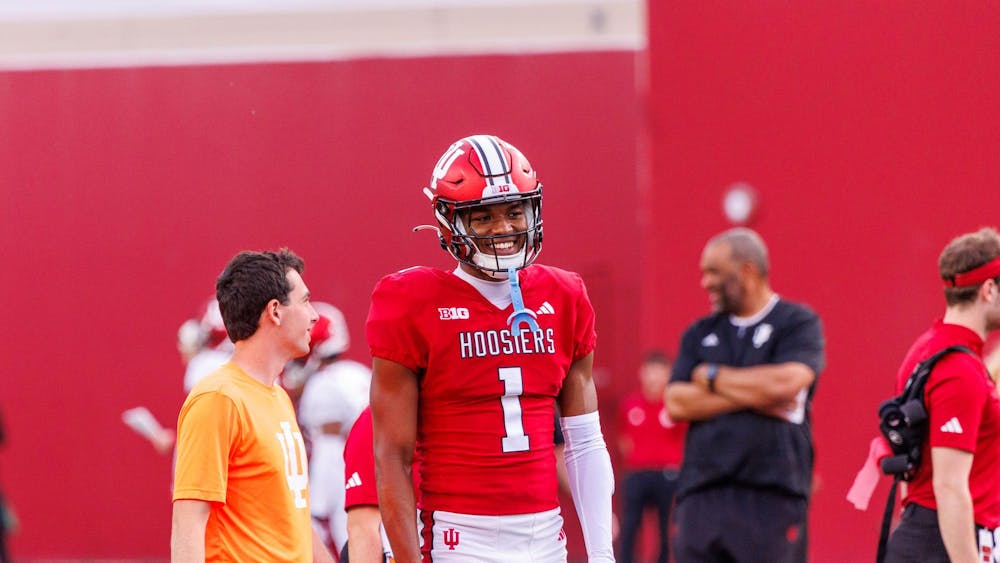Indiana has fought to uphold California’s Proposition 8 since 2010, defending California’s ability to define marriage as between a man and a woman.
When the U.S. Supreme Court agreed to rule on the statute’s constitutionality on Dec. 7, Indiana and more than a dozen other states’ efforts proved fruitful in bringing states’ rights to the national stage.
This spring, the Supreme Court will review Proposition 8, California’s ban on same-sex marriage, alongside the federal Defense of Marriage Act, which denies legally married gay and lesbian couples the right to receive certain federal benefits. On Monday, the Supreme Court scheduled Prop. 8’s hearing for March 26 and DOMA’s for March 27 with hopes of an official ruling by June 2013.
Although decisions in both cases will indefinitely affect Hoosiers, Indiana Attorney General Greg Zoeller has taken a particular interest in the future of Prop. 8, as it relates to states’ rights.
“With all due respect to those who have called for a truce from conflict on social issues, this is a legal question of central importance in our nation that only the United States Supreme Court can evaluate and determine with finality,” Zoeller said in a December press release. “We contend the people of each state — either through their elected legislators or directly by referendum — should have the authority to define marriage within their state, and Indiana stands firm in its vigorous defense of each state’s legal authority to recognize the traditional definition of marriage as a significant state interest.”
The statement came the same day the high court granted certiorari to the Prop. 8 case, Hollingsworth v. Perry.
In 2010, Indiana co-authored an amicus brief, or a friend-of-the-court brief, supporting the push to appeal California’s 9th Circuit Court decision that struck down Prop. 8. In August 2012, Indiana co-authored another brief with Michigan and Virginia asking the Supreme Court to hear the case and defending its constitutionality. Twelve other states joined the brief.
Now that the high court has decided to hear the case, Zoeller’s office announced the Attorney General and his Solicitor General, Thomas Fisher, are drafting two more friend-of-the-court briefs based on Indiana’s opinion of the merits of the Prop. 8 and DOMA cases, according to a press release.
“There are two opportunities to file amicus briefs in the U.S. Supreme Court. One is on the ‘cert petition’ stage, that is, when a request has been made that the Court consider hearing an appeal,” Zoeller spokesman Bryan Corbin said in an email. “The second opportunity to file a brief is in the “merits” stage – after the Court has agreed to accept a particular appeal, but before it has heard the oral argument on that case.”
Zoeller’s office has not yet released what its merit-based arguments will contain, but Corbin said he anticipates the briefs will reach the Supreme Court by the end of January.
In taking on these two cases, the Supreme Court has agreed to explore at least two major constitutional principles: states’ rights as guaranteed by the 10th Amendment and the Full-Faith and Credit Clause in the 14th Amendment.
The high court’s rulings could alter Indiana’s current push to amend the state’s constitution, defining marriage as between one man and one woman and rejecting a legal status “identical or substantially similar” to that of marriage. That effort, House Joint Resolution 6, was authored by Rep. Eric Turner, R-Cicero, and has already passed through Indiana’s House and Senate. If HJR 6 passes both chambers again in 2013’s legislative session, it will be put to a popular vote by referendum in 2014.
If the Supreme Court upholds Prop. 8, which also involved amending the constitution to define marriage as between a man and a woman, then Indiana could preserve its ability to define marriage for itself, IU-Purdue University Indianapolis constitutional law professor David Orentlicher said.
However, even if DOMA is overturned based on its presumed “discriminatory language,” which denies federal rights to some legally bound couples, it could still be hard to preserve states’ rights on the issue, Orentlicher said.
He also said the chances of the high court upholding Prop. 8 and striking down DOMA are unlikely.
“The states’ rights argument is indeterminate,” Orentlicher said.
Even if the high court rules in favor of states’ rights, the possible elimination of DOMA
could still undermine an individual state’s rights under the Full Faith and Credit Clause of the 14th amendment.
This hypothetical, though, is one the Attorney General’s office isn’t willing to comment on quite yet.
“It would not be appropriate for us to react hypothetically in advance to a decision the U.S. Supreme Court has not yet issued,” Corbin said in an email. “The legal positions of Indiana and the other states will be set forth in the two amicus briefs that will be filed, and we will let those briefs speak for themselves.”
Orentlicher said he believes the American people are more supportive of same-sex marriage than ever before, and it will be hard for the sitting Supreme Court justices to buck popular opinion.
In terms of legalizing same-sex marriage, Orentlicher said he believes it’s a matter of when, not whether or not.
“The argument against same-sex marriage is a difficult one to make. The more you view marriage as an institution between two people who want to make a long term commitment to each other, it’s harder to distinguish between same-sex and opposite-sex couples,” Orentlicher said. “I don’t think there’s any question that, at some point, the court will rule in favor of same-sex marriage.”
Supreme Court schedules Prop. 8, DOMA hearings
Zoeller to file two merit-based friend-of-the-court briefs
Get stories like this in your inbox
Subscribe





